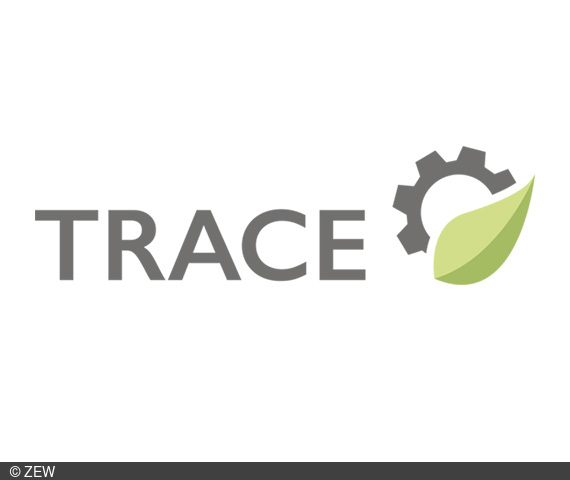What Impact Do Climate Policy Regulations Have on the German Industry?
EventsStart of the BMBF Project TRACE at ZEW
At a kick-off workshop on 9 May 2019, project partners of ZEW, the University of Mannheim and the Institute for Employment Research (IAB), joined by a stakeholder advisory board consisting of representatives from the government and the German industry, came together to discuss the objectives of a new research project on climate policy. The project “Evaluating Policy Instruments for the Transformation to a Low Carbon Economy: Causal Evidence from Administrative Micro Data” (TRACE) investigates the impact of climate policy regulations on the competitiveness, energy consumption and employment of the German industry. TRACE is funded by the Federal Ministry of Education and Research through its funding priority “Economics of Climate Change”.
The first project workshop met with great interest. Participants included representatives of the Federal Ministry of Labour and Social Affairs, the Federal Ministry for Economic Affairs and Energy, the Ministry of the Environment, Climate Protection and the Energy Sector Baden-Württemberg and the German Aerospace Center (DLR), which sponsors the project. The event also featured representatives from small and medium-sized German companies, the chemical industry and the food industry.
Transdisciplinary exchange of experience on climate economic issues
Together with the members of the advisory board, the project team, consisting of Kathrine von Graevenitz, PhD, Dr. Robert Germeshausen and Elisa Rottner from ZEW, Professor Ulrich Wagner and Dr. Andreas Gerster from the University of Mannheim as well as Dr. Markus Janser from IAB, discussed topics such as the Renewable Energies Act (EEG) levy, the emissions trading scheme, electricity network charges and sustainable jobs. The advisory board members brought their practical experience to bear in the discussion of the research project. Besides the great importance of electricity prices for the industry, they pointed out the key roles of the European Emissions Trading Scheme, domestic electricity generation and investments in renewable energy.
In addition to examining the consequences for competitiveness and emissions, the TRACE project also investigates the social dimension of climate policy regulations. The participants addressed questions concerning the creation of new sustainable jobs, changing qualification requirements for employees and changing tasks as a result of the transformation to a low-carbon economy. The members of the advisory board also discussed a possible structural change in industry composition as well as the potential danger of relocating jobs and investments abroad.
While the first day of the event was focused on honing the societal and policy relevance of the project, the following day saw a scientific workshop involving the project team and the scientific advisory board, consisting of internationally renowned professors from the USA, Great Britain and Switzerland. The workshop focused in particular on the methodological approach of the research project.
What’s next for TRACE?
The kick-off workshop provided the TRACE project team with new ideas regarding content and methods. In the following months, the team members will focus primarily on data preparation and analysis. The project team aims to present and discuss initial research results to the accompanying panel at the next meeting in the 2nd quarter of 2020.
About TRACE
TRACE is funded by the German Federal Ministry of Education and Research through its funding priority “Economics of Climate Change”. With regard to the challenge of mitigating climate change, the research project investigates the effects of policy measures such as the European Emissions Trading Scheme (EU ETS) and the German Renewable Energies Act (EEG) on labour markets and the economy. The project aims to shed light both on quantitative effects of climate policy regulation on competitiveness, energy consumption and employment in the German industry, as well as on qualitative changes of job contents and qualification levels in the German labour market.


